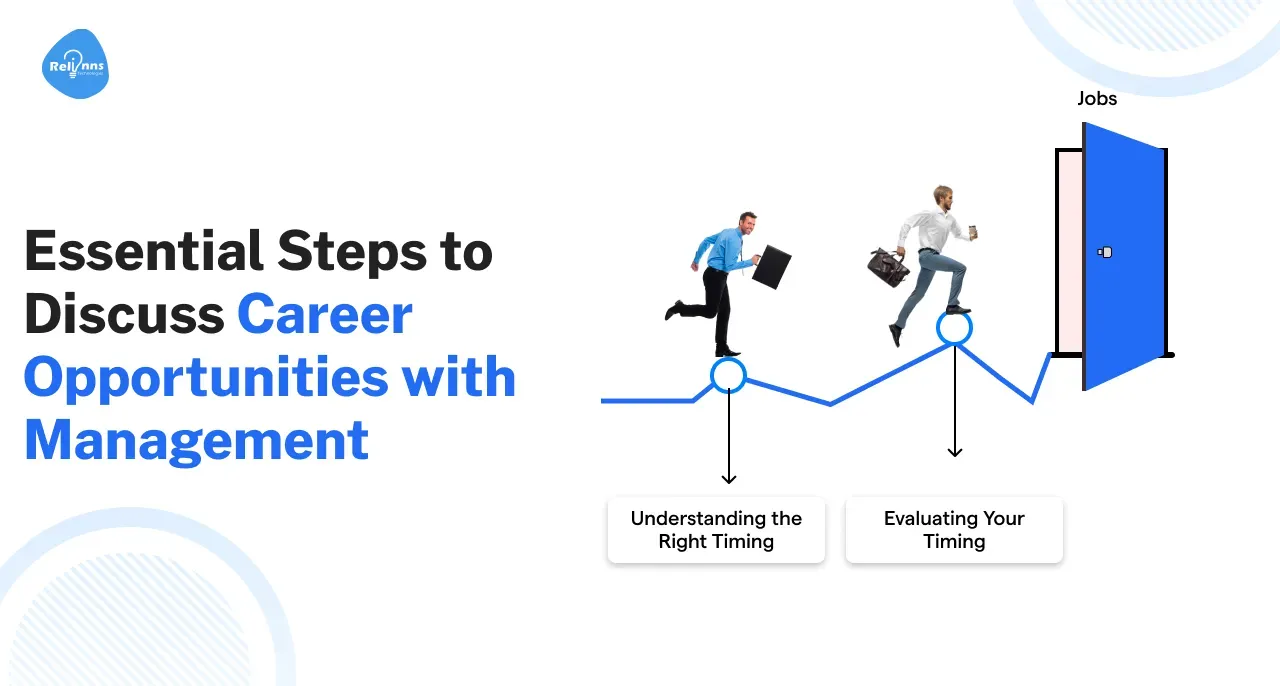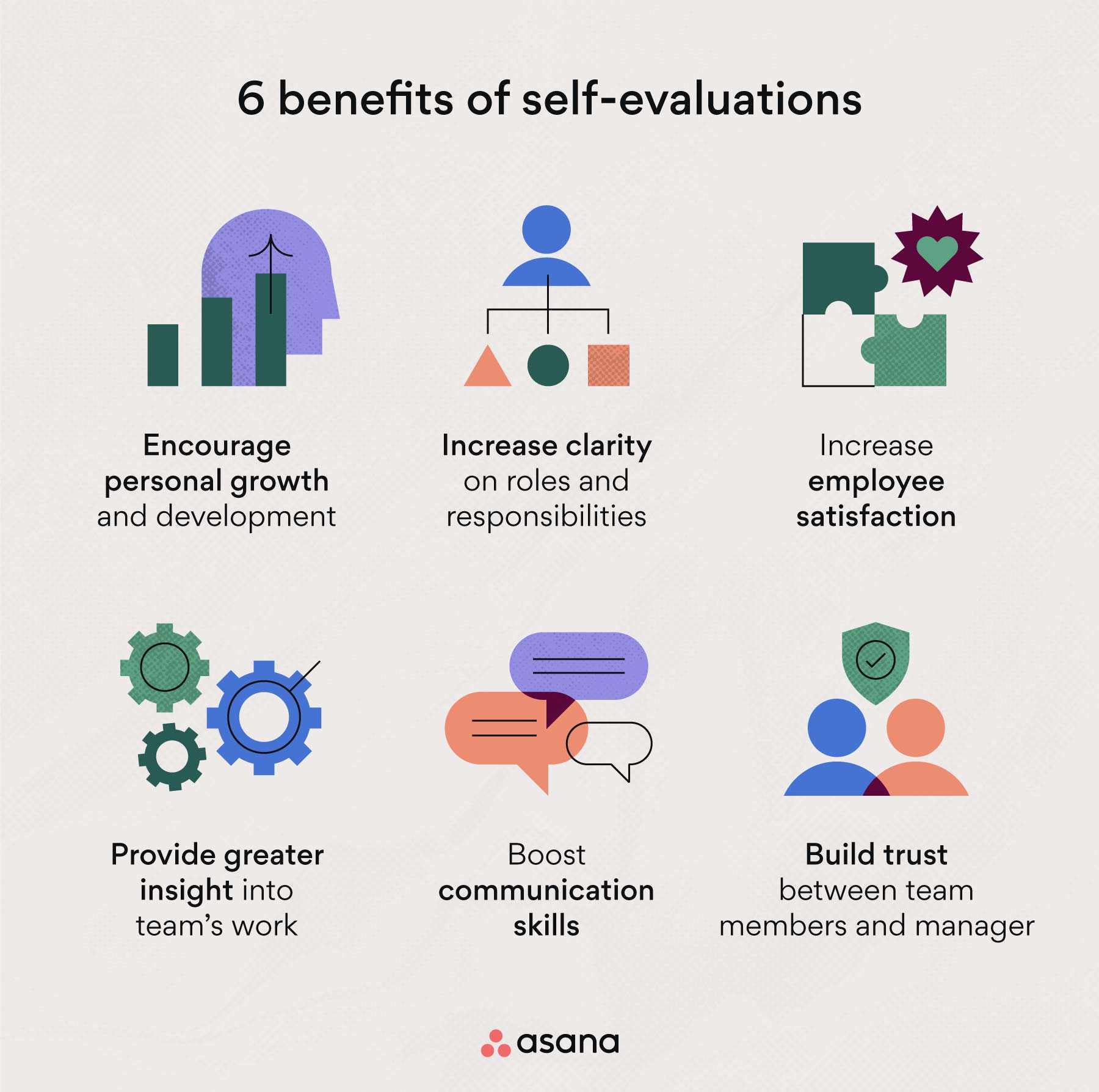Essential Steps to Discuss Career Opportunities with Management
Date
Jun 26, 24
Reading Time
7 minutes
Category
Other
- Introduction
- Understanding the Right Timing
- Preparation for discussion
- Approaching the Conversation
- Follow-Up After the Discussion
- Conclusion
- Frequently Asked Questions (FAQs)
Table of content

Introduction
Talking to your boss about your career can seem risky. It feels like showing your hand in a high-stakes poker game. Yet, the risk of staying silent might be even greater, hindering you career growth opportunities within the company.
Many employees hesitate, fearing the outcome of such discussions, but the real danger lies not in the conversation itself but in failing to have it at all.
This guide is about turning what might seem like a gamble into a strategic move.
It’s not just about asking for more; it’s about understanding where you fit in the grand scheme of your company’s journey and aligning your ambitions with its goals.
This article aims to equip you with the tools to initiate meaningful career discussions confidently by breaking down the essential steps to discussing career growth opportunities with management.
We’ll explore the importance of timing, how to prepare your talking points, and the best ways to approach the conversation.
Follow-up actions will also be covered to ensure that the productive dialogue continues long after the initial discussion.
This isn’t just advice—it’s a roadmap to more deliberate and rewarding career growth oppurtunities.
Let’s start this journey with clarity and confidence.
Understanding the Right Timing
Understanding when to discuss your career growth opportunities with management is as crucial as the conversation. Timing affects the outcome. It’s about picking the right moment when both you and the company are ready for your next step.
Assessing the Company’s Climate
Before discussing your career growth opportunities, consider your company's current situation. Is the business growing? Are new projects on the horizon? These signs suggest that the company might be looking to invest in its workforce.
On the other hand, if layoffs are happening or budgets are tight, it might not be the best time. This doesn’t mean you should never have the conversation, but you might need to adjust your approach or timing.
Evaluating Your Timing
Your readiness is just as important as the company’s.
Have you recently taken on more responsibilities? Have you completed major projects successfully? These accomplishments are your leverage in discussions of career growth opportunities. They show you’re ready to take on more.
If you’re unsure about your achievements, take some time to list them. See where you stand before you initiate the conversation.
Remember, the right timing combines your readiness with the company’s state. It’s about finding the spot where your career goals and the company’s needs align.
Choosing the right moment can make the conversation about career growth opportunities more productive and positive.
Preparation for discussion
Once you've determined the right time for your career growth opportunities discussion, the next step is to prepare thoroughly. Preparation shows you're serious and ready to take on new challengeFs, strengthening your case.
Self-Evaluation
Start by assessing your own performance and contributions. What have you achieved since your last evaluation? Identify your strengths and any new skills you've acquired.
Also, be honest about areas for improvement. This self-awareness shows that you are committed to your personal growth.

Goal Setting
Next, think about your career goals. What position are you aiming for? What kind of projects do you want to lead? How do these goals align with the company’s direction?
Being clear about what you want in your career growth opportunities helps you articulate your aspirations clearly to management. It also demonstrates that your goals are in line with the company's objectives, making it easier for them to support you.

Documentation
Prepare a concise document detailing your achievements, skills, and goals. This isn’t just a resume update—it’s a strategic presentation of your career growth opportunities. Include specific examples of your work that have benefited the company.
If possible, quantify these benefits, like increased sales or improved efficiency. This document will serve as a useful reference during your discussion and will help keep the conversation focused and factual.
Effective preparation sets the stage for a successful conversation. It shows you're proactive and engaged in your career development. By clearly presenting your achievements and goals, you help management see the mutual benefits of supporting your career progression.
Approaching the Conversation
After preparing your talking points and documents, the next crucial step is initiating the conversation effectively. How you approach your career growth opportunities discussion can greatly influence the outcome.
Choosing the Right Setting
Decide whether this conversation should be formal or informal. Scheduling a formal meeting might be best for a more serious or detailed discussion about career progression. This ensures you have dedicated time and privacy.
A casual setting like a coffee break could be more appropriate for general career guidance or mentorship. Choose a setting that matches the tone and content of your discussion.
Suggested Reading : Guide to Developing soft skills for Interviews
Communication Tips
When the conversation begins, start with gratitude. Acknowledge any support you've received so far.
Then, discuss your achievements and how they align with the company's goals. Be clear and concise. Speak confidently about your accomplishments and express your desire for new challenges.
Use the document you prepared as a guide, but don’t just read from it. Make eye contact and engage in the conversation actively.

Anticipating Responses
Be prepared for various outcomes.
Management might be fully supportive, or they might have reservations. They may also offer a different perspective on your next steps.
Listen carefully to any feedback. If the response is positive, ask about the next steps. If it’s uncertain or negative, don’t be discouraged. Ask for specific feedback on what you can improve and how you can prepare better for future career growth opportunities.
Navigating this conversation with professionalism and preparedness will demonstrate your commitment and readiness for advancement.
By choosing the right setting, communicating effectively, and being ready for different responses, you can ensure that the discussion is constructive, regardless of the immediate outcome.

Follow-Up After the Discussion
Once you’ve discussed career growth opportunities, following up effectively is important. This shows your commitment and keeps the momentum going.
Post-Meeting Reflection
Take some time to reflect on how the conversation went.
What were the key takeaways? Did you receive clear feedback or guidance on your next steps? Assess your own performance during the meeting. Think about what went well and what could be improved for future discussions.
This self-reflection is crucial for your professional career growth opportunities.
Continued Engagement
After the meeting, send a thank-you note to express your appreciation for the time and feedback given. This not only shows good manners but also reinforces your interest in growing with the company.
If specific steps or goals were discussed, follow up on them. Set reminders to update your management on your progress. This could be through informal updates or during regular performance reviews. Staying engaged shows you are actively working towards the career growth opportunities you discussed.
Keep the lines of communication open. If you see new career growth opportunities aligning with your discussions, don’t hesitate to discuss them with your manager. This proactive approach demonstrates your initiative and keeps you on the radar for future career growth opportunities.
Following up effectively ensures that the conversation about your career growth opportunities continues beyond just one meeting. It helps you build a relationship with management that is based on mutual respect and shared goals.
Suggested Reading :Effective Interview Techniques to Land Your Dream Job
Conclusion
In conclusion, discussing career growth opportunities with management is a pivotal step in your professional development. Understanding the right timing, preparing thoroughly, initiating the conversation wisely, and following up effectively can turn this potentially daunting task into a strategic career move.
Remember, the key is to approach this conversation with clarity and confidence. Reflect on your achievements, align your goals with the company’s objectives, and communicate effectively. These discussions are about immediate outcomes and establishing a pathway for your career growth opportunities.
Remember that career growth is a journey, not a one-time event. Regularly engaging with your management about your career aspirations will help you navigate this path more effectively. By staying proactive and prepared, you can ensure you are ready for new opportunities.
Take these steps to heart, and approach your career development conversations as opportunities to showcase your value and align your aspirations with the trajectory of your company.
Stay proactive and adaptable, and you'll find that growth and success are within your reach. In today's competitive world, enhancing your skills and developing strong communication abilities are essential for career advancement and personal fulfillment.
Relinns Technology provides an excellent platform for achieving these goals, offering a diverse range of career opportunities in both tech and non-tech fields. The company is committed to helping you enhance your skills, particularly in communication, through hands-on projects and continuous learning. By joining a team of passionate professionals and working on cutting-edge technologies, you will contribute to innovative projects while also sharpening your communication capabilities. At Relinns, you'll find the support and opportunities needed to build a successful career in any field.

Frequently Asked Questions (FAQs)
What are some career opportunities after BCA that I can discuss with my management?
After earning a Bachelor in Computer Applications (BCA), tech professionals can pursue various career paths such as software development, data analysis, and system management. Engaging in discussions about these opportunities with management can help pinpoint potential growth areas and training prospects within the company.
How should I approach my management about career opportunities after BSc?
When approaching management about career opportunities after completing a Bachelor of Science (BSc), focus on how your scientific skills can benefit ongoing projects or open up new avenues in research and development. It's important to align your interests with the company's strategic goals to facilitate supportive discussions.
What are the best career opportunities after BTech to pursue within my company?
After completing a Bachelor of Technology (BTech), the best career opportunities within your company might include engineering roles, project management, or even transitioning into leadership positions. Highlight how your technical expertise and project experience equip you to handle more complex challenges or lead teams.
How do I identify the best career opportunities within my current organization?
To pinpoint optimal career opportunities within your organization, leverage your interview skills by conducting informational discussions across various departments, stay informed about company updates, and align your skill set with the company's strategic direction. This proactive strategy will enhance your understanding of where your skills are most in demand and highly valued..
Can discussing career opportunities after my degree help in my professional development?
Discussing career opportunities after completing your degree is crucial for professional development. It helps management recognize your ambition and readiness to advance, and it aligns your career path with company needs, which can lead to tailored training, mentorship, and advancement opportunities.

